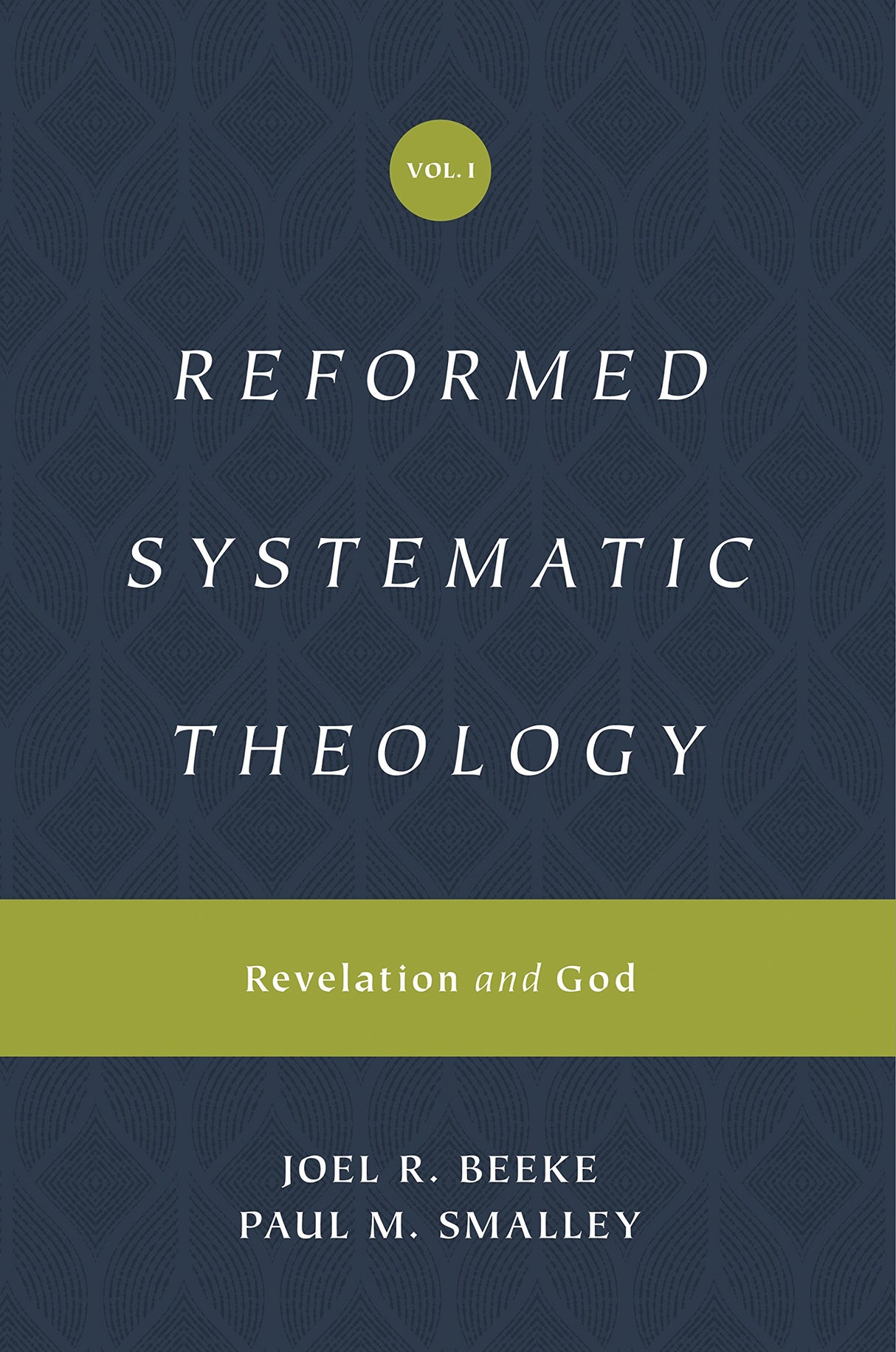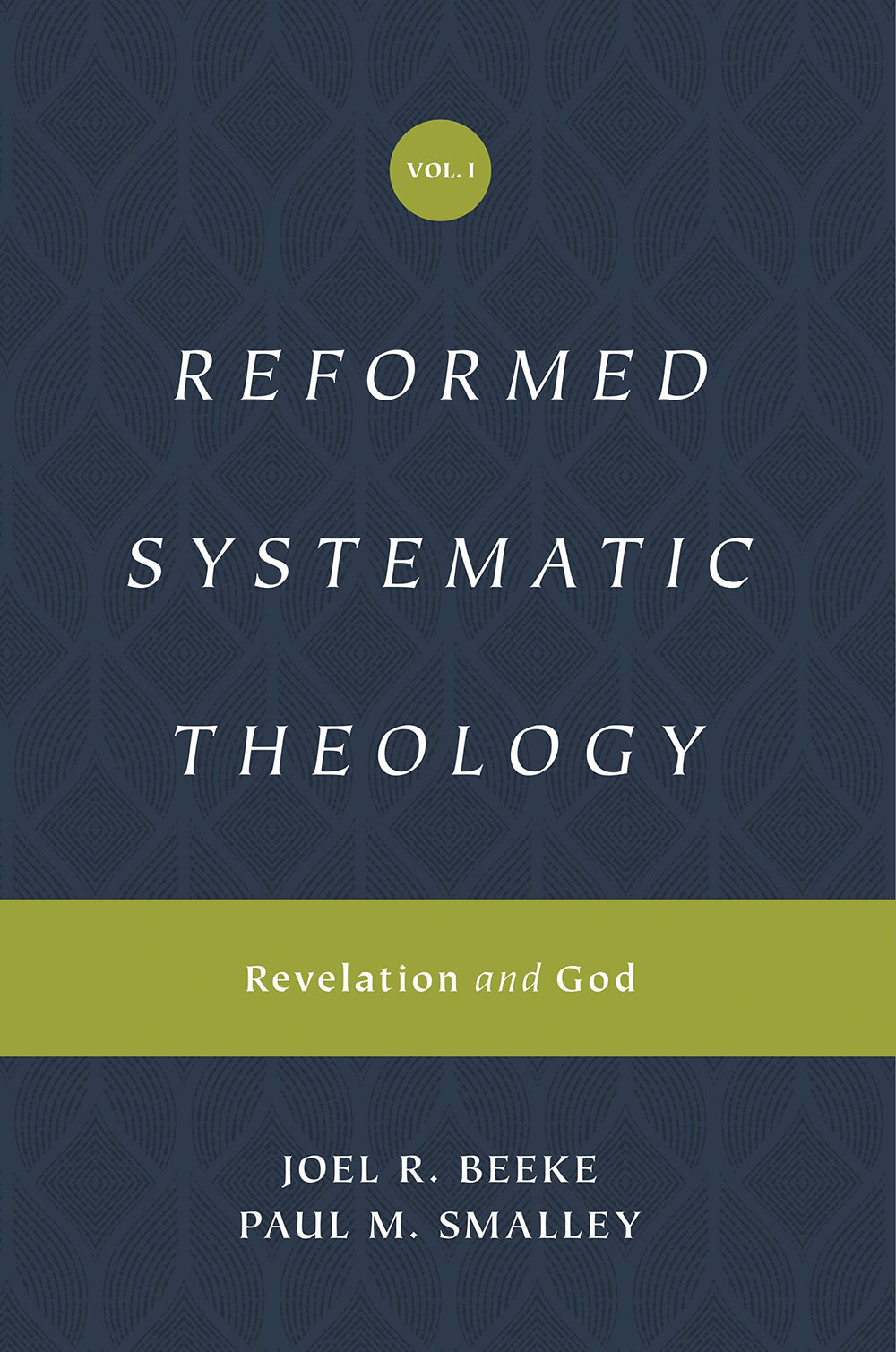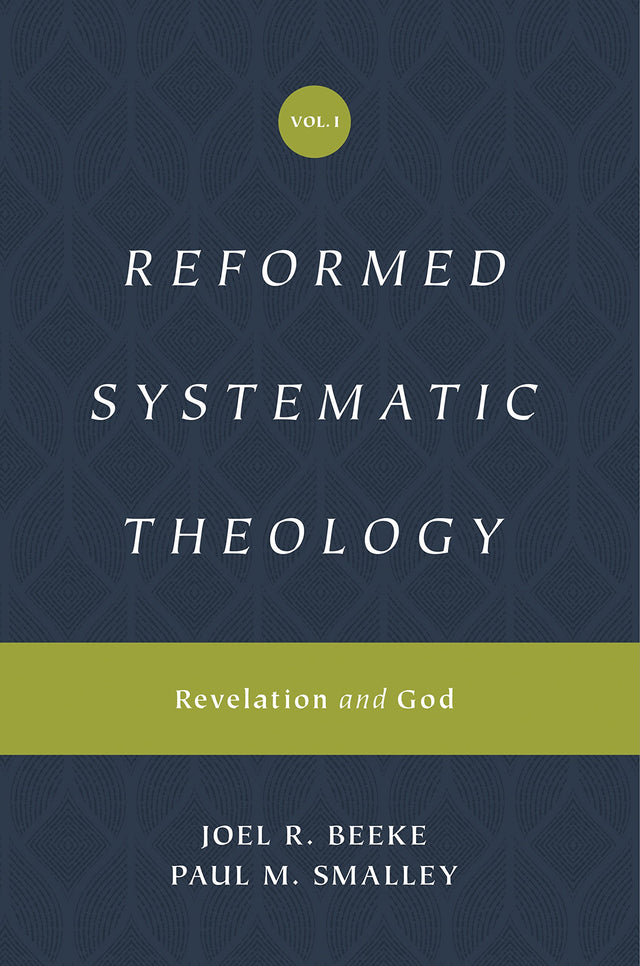Reformed Systematic Theology, Volume 1: Revelation and God
Beeke, Joel; Smalley, Paul M
Abbreviations
Tables
Preface
Part 1: Prolegomena: Introduction to Theology and the Doctrine of Revelation
Analytical Outline: Prolegomena
Section A: Introduction to Theology
- What Is Theology? Part 1: An Academic Discipline
- What Is Theology? Part 2: A Spiritual Discipline
- Who Does Theology? Where? When?
- Which Theology Do We Do? Part 1: Christian, Catholic, Evangelical
- Which Theology Do We Do? Part 2: Reformed: Historical, Confessional, Theological, and Hermeneutical Perspectives
- Which Theology Do We Do? Part 3: Reformed: Polemical and Experiential Perspectives
- Why Do We Do Theology?
- How Do We Do Theology? Part 1: Spiritual Dynamics
- How Do We Do Theology? Part 2: Academic Methods
Section B: The Doctrine of Revelation
- Theological Fundamentals of Divine Revelation
- General Revelation, Part 1: Biblical Teaching
- General Revelation, Part 2: Philosophy and Science
- General Revelation, Part 3: Natural Theology and Theistic Arguments
Excursus: Some Historical Perspective on Natural Theology and Theistic Proofs
- Special Revelation: Biblical Teaching
- Errors Regarding Special Revelation, Part 1: Romanism and Liberalism
- Errors Regarding Special Revelation, Part 2: Liberalism’s Offspring
- The Bible as the Word of God
- The Properties of the Written Word, Part 1: Authority and Clarity
- The Properties of the Written Word, Part 2: Necessity, Unity, and Efficacy
- The Properties of the Written Word, Part 3: Inerrant Veracity
- The Properties of the Written Word, Part 4: Objections to Inerrancy
- The Properties of the Written Word, Part 5: Sufficiency
- The Cessation of Special Revelation, Part 1: Charismatic Continuationism
- The Cessation of Special Revelation, Part 2: Prophecy Today
- Applied Revelation for Practical Fruit
Part 2: Theology Proper: The Doctrine of God
Analytical Outline: Theology Proper
Section A: The Doctrine of God’s Triune Glory
- Introduction: The True Knowledge of God
- Introduction to God’s Nature and Attributes, Part 1: Biblical Teaching
- Introduction to God’s Nature and Attributes, Part 2: Theological Issues
- The Name of “the Lord” (YHWH)
- The Holiness of the Lord
- Gods That Are Not God
- God’s Spirituality
- God’s Simplicity: “The Lord Our God Is One Lord”
- God’s Infinity, Part 1: Incomprehensibility, Aseity, and Immensity
- God’s Infinity, Part 2: Eternity: Infinity with Respect to Time
Excursus: Problems of Time and Eternity
- God’s Immutability, Part 1: Biblical Teaching
- God’s Immutability, Part 2: Theological Questions
- God’s Knowledge, Part 1: Omniscience and Wisdom
- God’s Knowledge, Part 2: Foreknowledge
- God’s Sovereignty: An Introduction to Omnipotence
- God’s Moral Excellence, Part 1: Goodness and Love
- God’s Moral Excellence, Part 2: Truth and Righteousness
- God’s Moral Excellence, Part 3: Jealousy, Impassibility, and Joy
- God’s Moral Excellence, Part 4: Wrath and Compassion
- The Trinity, Part 1: Biblical Teaching
- The Trinity, Part 2: Historical Development
- The Trinity, Part 3: Theological and Practical Considerations
Section B: The Doctrine of God’s Sovereign Purpose
- The Decree of God: General Considerations
- Predestination, Part 1: Election and Reprobation
- Predestination, Part 2: Historical Development through Reformed Orthodoxy
- Predestination, Part 3: Questions and Uses
- God’s Providence, Part 1: Biblical Teaching
- God’s Providence, Part 2: Problems and Applications
Section C: The Doctrine of Angels and Demons
- The Holy Angels of God
- Satan and the Demons
Bibliography
General Index
Scripture Index
7 Things We Can Learn from the Puritans
Why Pastors (And All of Us) Should Read the Puritans
How to Study Scripture Theologically
What Makes the Reformed Systematic Theology Series Unique
The Goal of Reformed Systematic Theology
-
Cover Type
-
ISBN
-
Page Count
-
Publisher
-
Publication Date










